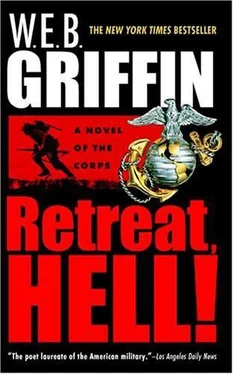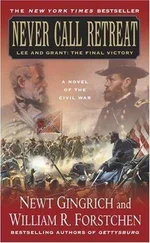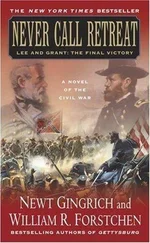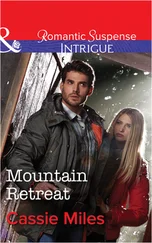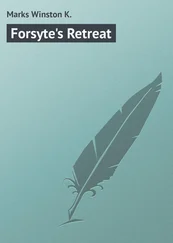They both chuckled. It was a private joke. They both knew that it was impossible to transmit an Eyes Only message that would be seen only by the eyes of the addressee. It had to be seen by the cryptographer (and probably, since this was a high-level message, by the officer supervising the cryptographer) when it was dispatched, and then by the cryptographer at the receiving end (and again, more than likely by his superior). And then, after it had been delivered—in this case, to the director's office—it had to be read by the Director's Executive Assistant (General Buchanan), who had to know everything the director knew.
About the only use Smith and Buchanan thought the Eyes Only classification had was that Eyes Only messages—if they weren't immediately shredded and burned—had their own filing cabinet. Which also meant that the officer in charge of classified documents had to read it to know where to file it, or what it was he was shredding and burning.
Smith bent slightly over his desk and began to read the message.
TOP SECRET
URGENT
TOKYO 1605 30 OCTOBER 1950
FROM DEPUTY DIRECTOR FOR ASIA
TO (EYES ONLY) DIRECTOR, CIA, WASHINGTON
DEAR MR. DIRECTOR,
ATTACHED HERETO IS A MESSAGE I RECEIVED TWO HOURS AGO FROM MAJOR KENNETH R MCCOY, USMCR, PRESENTLY IN KOREA.
I ATTACH GREAT IMPORTANCE TO IT FOR SEVERAL REASONS:
1 . IT IS THE FIRST TIME MCCOY HAS FLATLY STATED THAT SUBSTANTIAL CHINESE COMMUNIST FORCES ARE ALREADY IN NORTH KOREA. HERETOFORE, HE HAS MADE IT CLEAR THAT HE HAS HAD NO HARD INTELLIGENCE TO BACK HIS BELIEF THAT THIS IS THE CASE. I CONSIDER IT GERMANE TO POINT OUT THAT MCCOY SPEAKS CANTONESE FLUENTLY AND IS A HIGHLY SKILLED INTERROGATOR. THERE IS NO POSSIBILITY THAT HE DID NOT UNDERSTAND, OR MISCONSTRUED, WHAT WAS SAID TO HIM BY THE CHINESE PRISONERS.
I ATTACH GREAT IMPORTANCE TO THE POSSIBILITY MCCOY SUGGESTS THAT THE PRISONERS ARE IN EFFECT MESSENGERS SENT TO MAKE IT CLEAR THAT CHINESE MILITARY FORCES WILL ENTER THE CONFLICT IF EIGHTH ARMY AND X CORPS CONTINUE TO ADVANCE TOWARD THE MANCHURIAN AND SOVIET BORDERS.
I HAVE JUST CONFERRED WITH MAJOR GENERAL CHARLES WILLOUGHBY, GENERAL MACARTHUR'S INTELLIGENCE OFFICER. WITHOUT MAKING REFERENCE TO MAJOR MCCOY'S MESSAGE, I ASKED GENERAL WILLOUGHBY IF HE HAS HAD ANY NEW INTELLIGENCE WHICH HAS GIVEN HIM CAUSE TO RECONSIDER
HIS BELIEF THAT THE ENTRY OF THE CHINESE INTO THE CONFLICT IS HIGHLY UNLIKELY, AND EVEN IF THERE WAS SUCH INTERVENTION, IT COULD BE EASILY DEALT WITH BY EIGHTH ARMY AND X CORPS. GENERAL WILLOUGHBY STATED HE HAS HAD NO INDICATION WHATEVER THAT ANY CHINESE FORCES HAVE
CROSSED INTO NORTH KOREA FROM MANCHURIA, AND HE THEREFORE HAS HAD NO REASON TO RECONSIDER HIS POSITION.
RESPECTFULLY SUBMITTED,
FLEMING PICKERING, DEPUTY DIRECTOR FOR ASIA
ONE ATTACHMENT, TOP SECRET URGENT MSG FISHBASE 1125 30 OCTOBER 1950 TO DEP DIR FOR ASIA
TOP SECRET
"Very interesting," Smith said, raising his eyes to General Buchanan.
"He's putting a lot of weight on the judgments of a pretty junior officer, isn't he?"
"From what I hear, a rather unusual 'pretty junior officer,' " Smith said. "The President is taken with him, I know that."
"What are you going to do, General?"
Smith pointed to a red telephone on his desk.
"Get on there, Roger," Smith ordered, "and ask when the President can see me."
"Yes, sir."
Buchanan picked up the handset and was about to push Button Two, which would cause the telephone in the outer office of the President's office in Blair House to ring, when, with a sudden movement, Walter Bedell Smith reached over and pressed the switch in the base of the telephone, halting the call.
Buchanan looked at him in surprise.
"Roger," Smith said, "the Director would like to see the President, not General Smith."
"Whatever you say, sir," General Buchanan said.
"These are white shirts and multicolored neckties we have on," Smith said. "And there are no epaulets with stars on them on our shoulders. We're going to have to keep that in mind. Starting with you. You can call me anything but 'General.' "
"Certainly, Your Holiness," Buchanan said.
Smith chuckled and took his finger off the telephone switch. Buchanan pushed Button Two.
"This is Roger Buchanan of the Director's office," he said. "Director Smith would like to see the President as soon as possible."
Smith mimed clapping his hands and mouthed, "Very good, Mr. Buchanan."
Buchanan smiled at him, then said "Thank you" into the telephone. Then he covered the microphone with his hand. "He's there, Mr. Director. She's going to ask him."
Less than thirty seconds later, Buchanan said, "Yes, sir, he is. Hold one, Mr. President."
He handed the phone to Smith.
"Good afternoon, Mr. President," Smith said into the phone, then listened for a moment and added, "I'm glad to hear that, sir. I would like his opinion of what I want to show you. I'll leave directly. Thank you, Mr. President."
He put the phone in its cradle.
"General Howe is with the President," Smith said. "Fresh from the Far East." He pushed himself out of his chair and walked quickly toward his office door. Buchanan picked up the red telephone and pushed Button Nine. "This is Gen . . . this is Roger Buchanan. The Director's car at the door— now," he ordered.
[THREE]
The President's Office
Blair House
Pennsylvania Avenue
Washington, D.C.
1655 31 October 195O
"That was quick, Mr. Smith," Harry S Truman said to Walter Bedell Smith.
Smith looked around the room and saw there was no one in it but the President and Major General Ralph Howe, NGUS, who was in civilian clothing. That pleased him. That meant that the President would not, out of courtesy, show Pickering's Eyes Only to any one of a number of people around him who really didn't have to—shouldn't—see it.
"I came as quickly as I could manage, Mr. President," Smith said.
"I think I should say this," Truman said as he shook his hand. "I wasn't trying to be distant, formal, when I called you 'Mister.' I'm just not comfortable with 'Beetle.' It sounds disrespectful."
"Mr. President, you can call me anything you'd like to call me."
"How about 'Smith'? Would that be all right? Or even 'Smitty'?"
"Either would be fine, Mr. President," Smith said.
"Maybe 'Smitty' goes a little too far the other way," Truman said. "Smith, you remember General Howe, don't you?"
"Yes, sir. Of course. Welcome home, General."
"Thank you," Howe said.
"When you called, Smith, I was just about to send Ralph over to see you. I have ordered him to repeat to you some of the unkind things he's been telling me about Douglas the First, Emperor of Japan, and his Royal Court."
"I'll be interested to hear them, sir. At your convenience, General."
"What Ralph tells you is to go no farther," Truman said. "Especially not across the Potomac to the Pentagon."
"I understand, Mr. President," Smith said.
"What have you got for me?" Truman asked.
"An Eyes Only from General Pickering," Smith said.
He started, somewhat awkwardly, to try to open his briefcase.
"That would be a lot easier if you were sitting down," Truman said.
"Thank you, Mr. President," Smith said, and found a place on a small couch.
"Are you a drinking man, Smith?" the President asked. "Or is it a little early for you?"
Smith hesitated, and finally said, "I take a drink from time to time, sir."
"Ralph and I are about to have a very stiff Jack Daniel's," the President said. "Is that all right, or would you like something else?"
"Jack Daniel's would be fine, sir, thank you."
Howe got out of his chair and walked to the door.
Читать дальше
